日本语言学校是只学日语呢还是还要学其他文化课?(例如:英语,数学类)
来源:国际学校招生网
时间:2024-02-01 00:12:02
本文目录一览:
日本语言学校是只学日语呢还是还要学其他文化课?(例如:英语,数学类)
一般来说,语言学校都是设置的是日语课程,一般只学日语。但有些学校也设置了文学课程,比如我所知道的大阪翼路学园就设置了出日语课程以外的文化课程,包括数学,文综和理综,另外还有英文。但这些课程不是强制要求你参加学习的,是进了这个学校,报他们的这个课程,才会又能学日语,又能学他文学课。另外即使学了文化课,课时上比一般的单纯日语课程的课程数多,但是学费一样,并没有增加学费。
所以LZ如果要选择有文化课的语言学校时可以再多查查资料,并非所有的语言学校都有文化课的。
日本大学语言课程介绍
日本大学不仅开设日语课程,也开设英语学位课程。英语课程主要针对国际学生。但毕竟是在日本,说日语的时候还是居多。因此上英语课程的国际学生一般也需要学点日语。这就涉及到日本大学中的语言培训课程。那么,这类课程情况怎样呢?欢迎和一起了解。
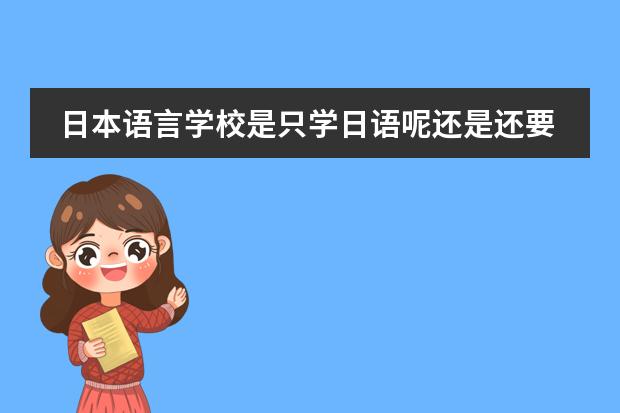
LANGUAGE TRAINING
语言培训
One of the most notable features of the English program is that it offers an undergraduate education in Japan which is conducted in the English language. However, while our English degree programs use English as an instructional language, the world outside of the classroom is, of course, Japanese. In other words, there are only a limited number of situations in which students will be able get by using only English. In order for students to maintain a healthy and enjoyable life while studying and living in Japan, a degree of proficiency in the Japanese language is imperative. It is the primary goal of the English program Japanese and Japanese Issues Course to help students develop their abilities with the Japanese language, as well as gain an understanding of issues which have bearing on life, study and work here in Japan.

英语项目的一个最显著的特征就是,它在日本提供教学语言为英语的本科教育。然而,虽然筑波大学的英语学位项目教学语言为英语,课堂以外的语言仍然是日语。也就是说,只说英语的场合是比较有限的。为了让国际学生在日本保持健康愉快的学习生活,学校要求学生掌握一定日语。英语项目中的日语和日语话题课程的首要目标,便是帮助学生培养日语能力,获得对在日本生活、学习和工作相关问题的认识。
In regard to learning the Japanese language, we are concerned with helping students work towards developing proficiency in using Japanese in real-life situations. The notion of real-life situations includes the following 3 areas. The first is ‘survival’, such as asking for directions or getting help in a store, etc. It is usually possible for students to develop these kinds of language skills within their first 3 months to 1 year in Japan. The second is everyday interpersonal interaction, such as chatting with friends, participating in extra-curricular activities, etc. This area roughly corresponds to what some second language acquisition researchers refer to as BICS (Basic Interpersonal Communication Skills). Research suggests that these language skills usually develop within six months to two years after having arrived in the country where the language is spoken. The third is academic and professional interaction, such as participating in classes offered in Japanese, making research presentations, participating in formal and professional activities in Japan, etc. This area roughly corresponds to what some researchers refer to as CALP (Cognitive Academic Language Proficiency). Research suggests that it may take five to seven years, or longer, for students to reach proficiency in CALP.

关于日语学习,学校考虑通过帮助学生在真实场合中使用日语来培养学生的日语能力。真实场合这个概念包括三个方面。第一个是“求生”,比如问路,在商店买东西等。一般而言,这方面的日语能力可以在学生到达日本的前三个月里获得。第二个方面是日常交际,比如和朋友聊天,参加课外活动等。这个方面与某些二语习得研究者所说的“基本人际交流技能”大致吻合。研究者指出,这些语言技能可以在学生达到目标语言国家的六个月到两年时间内获得。第三个方面是学术和职业互动,比如参与日语课堂,做研究展示,参与日本正式的职业互动等。这个方面与某些研究者所说的“认知学术语言能力”大致吻合。研究者指出,认知学术语言能力可能需要五年到七年,甚至更长的时间才能获得。
Regardless of whether students enter the program with little or no Japanese language ability, a good command of basic interpersonal interactional skills, or higher levels of language ability, it is the mission of the English program Japanese and Japanese Issues Course to help students progress as far as they can along the path to professional level competence in Japanese, and a substantial understanding of Japanese cultural and social issue which have bearing on their daily lives in Japan.
无论学生进入项目学习的时候是否具备日语能力,是否掌握良好的基本人际交流技能或者具备高级日语能力,英语项目中的日语与日语话题课程的任务都是帮助学生在通往职业水平日语的道路上尽可能地取得进步,获得对日本文化和与日常生活相关的社会问题的足够认识。
Overview of the Structure of the Course
课程结构概况
All English program students at the University of Tsukuba will receive Japanese language training in their first year. 4.5 credits of Japanese are required in first year, totaling 90 hours of in-class Japanese language tuition. However, this is only a very small part of the total picture of learning the Japanese language. In order to gain an actual ability to use Japanese in real-life situations, students will need to put in many additional hours of time outside of the classroom. The classroom should be thought of as a kind of home base from which students will plan and practice in preparation for real language use, and where they will evaluate their progress. Learning another language requires considerable work, but the benefits are commensurate with the effort!
学习筑波大学英语项目的所有学生,在第一学年都会接受到日语培训。第一学年要求4.5个日语学分,总共90个日语课堂学时学费。不过,这只是日语学习总蓝图中的很小的一个部分。为了获得真实场合中使用日语的能力,学生课外还需要花足够的时间。课堂仅作为学生真实语言使用计划和操练的本垒,作为学生评估语言进步的场所。学习一门外语需要做大量的功课,而收获和付出是等同的。
The English program Japanese and Japanese Issues Course offers classes in Japanese as a foreign language, and in Japanese Issues. In regard to the Japanese language classes, at the elementary levels (Japanese 1~4), English is used to give instruction in Japanese grammar, and focus is placed on developing students’ abilities with using daily conversational language (oral, listening, pragmatic, and interactional skills), and reading and writing skills. At the intermediate/advanced levels (Japanese 5~7), the goal is to help students develop higher levels of proficiency in individual skill areas, such as grammar, speaking, listening, reading, kanji, etc. These higher-level classes are taught in Japanese. The Japanese Issues classes are taught using the English language as an instructional medium, and offer foundational knowledge in a broad range of topics on Japanese society, culture, history, etc.
英语项目中的日语和日语话题课程将日语作为外语来学习,也探讨日语相关话题。说到日语课程,在基础阶段(日语1至4级),英语被用作教学语言,用来解释日语语法,这时课程的焦点是培养学生的日常语言交流能力(口语、听力、语法、互动技能)、阅读和写作技能。在中间阶段(日语5至7级),课程的目标是帮助学生培养个人技能方面的中级日语能力,比如语法、口语、听力、阅读、认识日本汉字等。这些中级课程用日语授课。日语话题课程则用英语授课,为学生提供日本社会、文化、历史等话题相关的基本知识。
In addition to their required 4.5 credits of Japanese, English program students are strongly encouraged to continue studying Japanese autonomously at the Center for Education for Global Communication. The CEGLOC at the University of Tsukuba is proud to have one of the best Japanese language training programs in Japan, with numerous experienced faculty members helping students progress in steps towards their Japanese language learning goals. English program students who have ability commensurate with the Japanese 4 level (documentable by sitting for a placement test offered at the beginning of every term) are eligible to take individual language skills classes at the CEGLOC. Classes are offered in grammar, speaking, listening, reading, kanji, etc., and are tailored to a range of skill levels from intermediate-low to Advanced-high/Superior proficiency .
除了要求的4.5个日语学分,学校还积极鼓励英语项目学生在全球教育交流中心继续自学日语。筑波大学的全球教育交流中心拥有日本最好的日语培训项目,有众多经验丰富的教师帮助学习在实现日语学习目标上取得进步。掌握日语四级(通过参加每学期开始组织的分级考试来检验)的英语项目的学生有资格在全球教育交流中心学习单门语言技能课程。课程涉及语法、口语、听力、阅读、日本汉字等,适合中下级到高级日语水平的各层次的学生。
An important additional resource for English program students studying the Japanese language and Japanese issues is the Center for Distance Learning of Japanese and Japanese Issues. The University of Tsukuba has been appointed as a Center for Distance Learning of Japanese and Japanese Issues by the Minister of Education, Culture, Sports, Science and Technology. To date, a variety of materials, such as Japanese language textbooks, audio visual language learning materials, web-based Japanese proficiency tests, etc., have been developed at the International Student Center. Based on these experiences and achievements, the Center for Distance Learning of Japanese and Japanese Issues is developing and operating a new bi-directional e-learning system, and related educational materials. This e-learning system supports students’ individually paced studies of the Japanese language and Japanese Issues. Global 30 students should take advantage of these and other online learning resources both before and after coming to Japan.
对于学习日语与日语话题的英语项目学生,还有一个重要的学习资源,就是日语与日语话题远程教育中心。在日本文部科学省的批准下,筑波大学设置列了该学习中心。迄今为止,国际学生中心汇集了各种学习材料,比如日语教材、语言学习视听材料、网上日语能力测试等。基于这些经历和成就,日语与日语话题远程教育中心目前在发展和运营新的双向电子学习系统,聚集有教育相关材料。该电子学系系统为学生的日语与日语话题学习提供基于个人节奏的帮助。Global 30的学生应该在来日本之前和来日本之后利用好这些资源以及其他线上学习资源。
日本的课程有那些?
初中有物理、化学、语文、数学、英语、社会(历史、公民)、音乐、家庭(做饭、缝衣服)、体育,其他的忘了。高中有日本史、伦理、化学、语文(古文和现代文分开的,算两科)、英语(分2科)、数学、物理、世界史、体育,时间应该和中国差不多,中学里最令人瞩目的是各种俱乐部活动,大约80%以上的学生都会参加到各种文体俱乐部里,就女儿的中学来说,有各种球类、田径、剑道等体育俱乐部,也有吹奏乐、美术及茶道等艺术文化俱乐部。每年体育俱乐部和吹奏乐队的成员都会参加中学生联赛,从地区到县里,再到全国,优胜劣汰,层层选拔,最后决出全国中学生最强队“文化祭”则是中学生活的另一道亮丽的风景线。学生们将自己日常的社会活动、修学旅行、学校生活的感想等等编排成文艺节目,在文化祭上上演。有小品、短剧、舞蹈、吹奏乐演奏……,几乎囊括了各种艺术形式。有趣的是去年女儿他们将课本上的一段历史内容拍成了一部小电影,自编自演,现代、古代时空穿梭交替。放映过程中,笑声不断,好评如潮。这个经历成为了她中学生活的最美好回忆。有书面的家庭作业以上就是国际学校小编整理的内容,想要了解更多相关资讯内容敬请关注国际学校。免责声明:文章内容来自网络,如有侵权请及时联系删除。


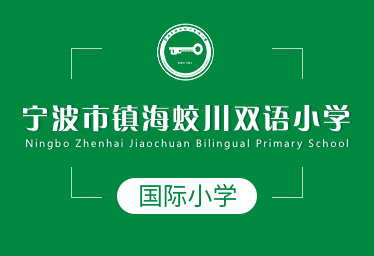
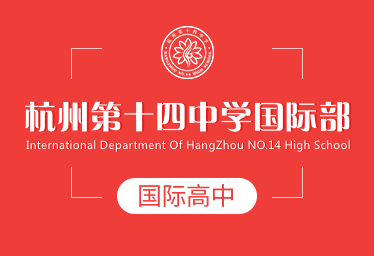
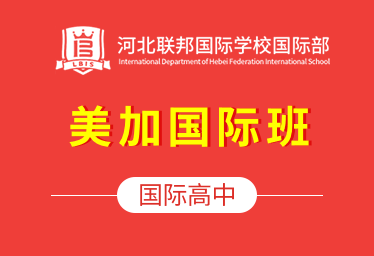

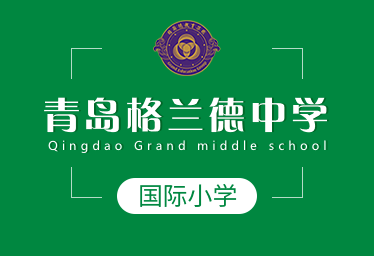
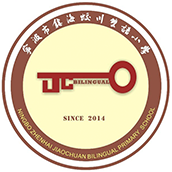 宁波市镇海蛟川双语小学
宁波市镇海蛟川双语小学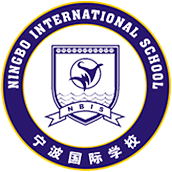 宁波国际学校
宁波国际学校 天津英华国际学校
天津英华国际学校 上海中学国际部
上海中学国际部 铁岭枫树岭国际学校
铁岭枫树岭国际学校 石家庄康福外国语学校
石家庄康福外国语学校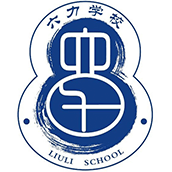 六力国际学校
六力国际学校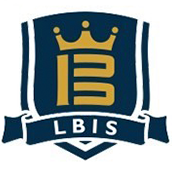 河北联邦国际学校国际部
河北联邦国际学校国际部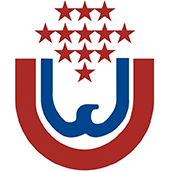 杭州市实验外国语学校
杭州市实验外国语学校